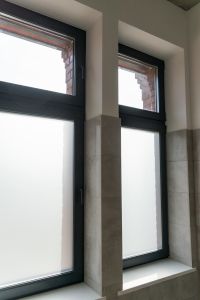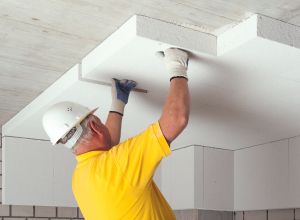Consumers throughout Europe are groaning under the rising costs of gas, heating oil and electricity. More than ever, good insulation is worthwhile. The investment pays off not only in the form of lower heating bills. The indoor climate for the occupants also improves all year round. In winter, these houses stay warmer for longer, and in summer they stay cooler for longer. Energy-efficient construction and renovation also protects the environment. EU Commission Vice President Frans Timmermans complains: "Millions of people in Europe can no longer pay their energy bills - often they live in old buildings with high energy consumption. A building with poor insulation needs up to ten times as much heat as a well-insulated house." This is also how the European Union wants its "REPowerEU" plan to reduce many EU countries' dependence on fossil fuels from Russia.
Among the EU demands is the introduction of a renovation obligation for buildings that are not sufficiently insulated. For good reason: real estate is responsible for around 40 percent of total energy consumption and 36 percent of greenhouse gas emissions in the EU.
Saving energy with autoclaved aerated concrete, calcium silicate blocks and insulating materials
The more heating costs rise, the more important good insulation becomes. That is why the EU is also increasing its pressure on owners of old and new buildings.
Saving energy in new construction

With its Ytong and Silka product brands, Xella offers a perfect system for building with integrated thermal insulation combined with optimal statics, safe fire protection, and high sound insulation.
In the autoclaved aerated concrete (AAC) from which Ytong is made, millions of evenly distributed small air voids act as buffers. On the one hand, they prevent the loss of heat to the outside, and on the other hand, they store heat inside the block. In this way, AAC offers the best thermal insulation of all solid wall-building materials. In addition, Ytong prevents the emergence of the dreaded thermal bridges, because the uniform use of the building material ensures consistent energy quality. This is not only easy on the energy budget. It also saves the cost of additional insulation. Thanks to its high energy efficiency, aerated concrete is suitable for the construction of state-subsidized KfW efficiency or passive houses.
With a lambda value of only 0.07 W/(mK), Ytong Planblock has one of the best insulation values for solid building materials. It enables single-shell constructions with wall thicknesses of 36.5 cm, with which the requirements for the highest energy efficiency standards can be met. If slim walls with high bulk density are required, Xella offers the ideal solution for energy-optimized exterior walls with functional walls made of Silka calcium silicate units and a composite thermal insulation system, preferably made of Multipor. In both cases, the occupants of the buildings benefit from permanently low heating costs.
Efficient refurbishment

Insufficient insulation is one reason why more and more existing buildings have to be refurbished. In this case, the mineral and ecological Multipor insulation systems are an optimal solution for a wide variety of applications. This applies to interior insulation, air ducts, underside ceilings, basements and garages as well as to the insulation of solid, pitched and flat roofs in new and old buildings. Multipor ExSal Therm is the solution for damp and salt-affected masonry.
Multipor mineral insulation boards are made from the natural raw materials lime, sand, cement and water. The material is therefore safe from a building biology and health point of view during processing and throughout the life of the property.e you can also add an image in the text block, upload an image in the settings.
Saving electricity in summer
Optimal building material also reduces energy costs in the summer, in this case for electricity. Swiss experts expect that, as a result of climate change, by 2050 at the latest we will need more energy to cool buildings in summer than to heat them in winter.
Every year, sales of electricity-powered mobile air conditioners boom again during the hot summer weeks. But the receipt for cooling overheated rooms also follows with the electricity bill. The pleasant temperature is not only expensive: because of the additional energy consumption, it also becomes another driver of climate change.
Jürgen Leppig, chairman of the GIH Energy Consultants Association, added at the Xella Building Academy, where the company pools and passes on its knowledge: "In the coming years, thermal insulation in the house will become even more important than measures against cold." This is because good building protection is not only important for health and energy consumption. "Employee loyalty also benefits - literally - from a good working atmosphere. In addition, measures against rising temperatures and humidity have been proven to reduce the frequency of errors in hot weather," says Leppig. The same applies to cold.
More sustainability news
-
Saving CO₂ Emissions Through Smarter Transport
How alternative logistics make construction more sustainable.
View more -
How to integrate responsibility into every step from production to recycling?
At Xella, sustainability is our DNA and influences our practices throughout our entire value chain - from energy production to responsible use of raw materials.
View more -
Kick-off of ReloAD: working together toward circular construction logistics in Brussels
What if every leftover block on a construction site could start a new life instead of ending up as waste? That’s the vision behind ReloAD—an innovative project aimed at making the logistics flows
View more
Introduction
2025 Xella International. All rights reserved.